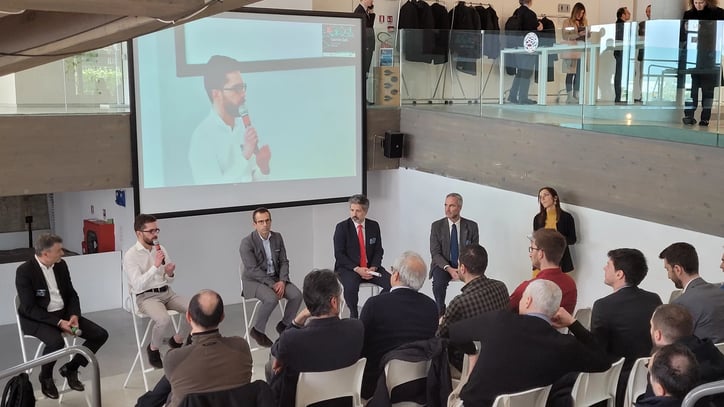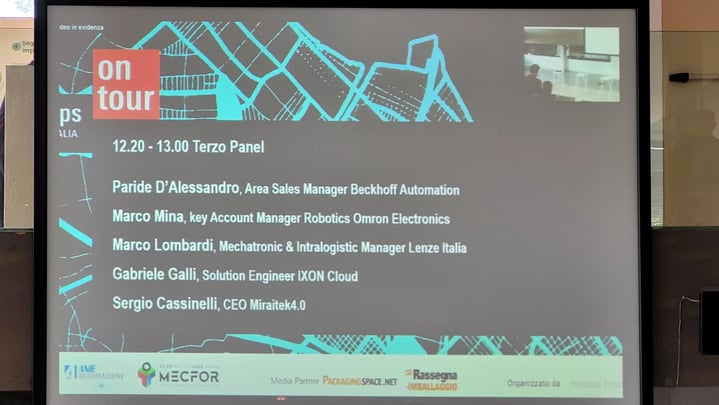- Home
- News
IXON attends SPS Italia On Tour in Rimini
2 min. read
Monica Negri
The third leg of the SPS Italia On Tour, the round table that brought together companies from the Digital&Software world on the topics of sustainability and industrial resilience, was held on 21 March in Rimini (Italy).

In the run-up to SPS Italia (Parma, 23 - 25 May), IXON Cloud participated in a round table dedicated to the main players in the automation industry. The event entitled ''Towards a sustainable, human-centric and resilient industry'' had the clear objective of highlighting solutions and applications that can provide concrete benefits in terms of sustainability and resilience of production cycles.
Gabriele Galli, Solution Engineer at IXON Cloud, answered the following questions, illustrating the potential of IIoT and the Cloud to benefit the entire industry.
The topic of sustainability is related to industrial machinery for two reasons: the first is the cost, the second is the impact of their operation on the community, as they require the use of raw materials, producing waste and CO2.
Manufacturers can build machines with a reduced impact and they can do so based on hard data, and therefore on experience. Industrial IoT and the Cloud provide this possibility, because they allow the acquisition of machine lifecycle data, in large quantities and at high speeds.
Manufacturers then have the information they need to optimise the operation of machines in their lifecycle and to build new, more efficient ones. This is our idea of sustainability.

To ensure greater efficiency, the traditional paradigm between manufacturer and end user, in which the manufacturer only sells the machine, needs to be changed. Thanks to IIoT and the Cloud, the manufacturer can control the entire life cycle of the machines and sell the services.
This is possible by condition monitoring, for example: by checking the actual operation of the machine, I do not risk replacing components prematurely because perhaps the machine has been used less than expected. In the opposite case, I risk overuse of components and the associated quality problems on the parts produced. By basing maintenance on the condition of the machine, downtimes, which are a big problem for the end user, can be avoided.
We also think of the staff turnover that companies are experiencing: the technician in the factory who was trained in the set-up phase might choose to go and work in another company. There is therefore a need to adequately train those who take over, in order to continue to guarantee high performance. This is a coaching service that the manufacturer can provide to the customer.

It is also possible to recover machines at the end of their life instead of discarding them: the machine is retained, while the components are remanufactured. Performance is monitored and optimised by those who know it best, i.e. the manufacturer, then the machines are reused and the components recycled.
Digital technologies play a fundamental role: they improve the quality of life, optimise processes and reduce manual operations. This allows people to spend more time developing new skills and projects.


